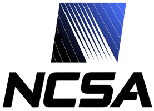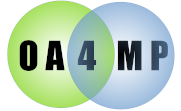

OA4MP offers a very long and distinguished service life -- it is very well tested and has performed well for over a decade. It also supports a huge number of specifications, so there are rarely issues with any clients. Finally, it provides a very elegant way to extend the service with an external scripting language, QDL
It is deployed as the backbone for CILogon where it has as of this writing (5/24/2023), over 1900 registered clients from various platforms and nearly 248k registered logons.
A typical real world use is a large national scientific lab that has dozens of specialized clients for various research projects, each of which has several users. (See the policy example below). There are token issuance policies for the institution as well as very specific requirement for interoperations. These policies are implemented in QDL which runs on OA4MP.
This is taken from one of our customers. A user may authenticate with any of a certain number of IDPs (Identity Providers). For some of these that are affiliates, user information is searched in an external source (a private LDAP) and the user is verified in that way. This is the institutional policy for access by non-members. This permits institutions to collaborate on projects without, say, having to issue temporary logins for external members.
Now we move on to policies for a client. (So a client in practice might be for a specific research grant and allow access to the resources for that.) Policies about what set of scopes with specific requests for access tokens and identity information are honored. (Again, if users are at different institutions, there may be different policies on what personal information may be disclosed.) These typically require look ups in a database or LDAP. Policies can be applied based on other group memberships of the user. (E.g. a user that requests read access to a MySQL database must be in the mysql-access group). It is possible to have extremely complex, tailored policies that allow rigorous and exacting enforcement for each client. This forces sane and coherent policies across multiple institutions.